There’s nothing more rewarding than seeing fossil fuel giants buckle under the pressure of our collective action. We live for moments where justice is served through movements, big and small, organised and powered by people like you.
While 2023 gave us some grim moments, we remained steadfast in our fight for ocean health and climate justice, and we will continue doing so in the years to come. To quote Greta Thunberg: “When enough people come together, then change will come, and we can achieve almost anything. So instead of looking for hope — start creating it.”
Highlights from the year here in Aotearoa
In the wake of Cyclone Gabrielle, which climate scientists confirmed was made more powerful and unpredictable by climate change, we were there to highlight that the New Zealand Government has failed to reduce emissions that are making the climate crisis worse.
Following the climate-induced storm deluge on Auckland Anniversary day, on March 16, Greenpeace activists returned to sender flood-damaged household items and turned Fonterra’s head offices into a flood zone.
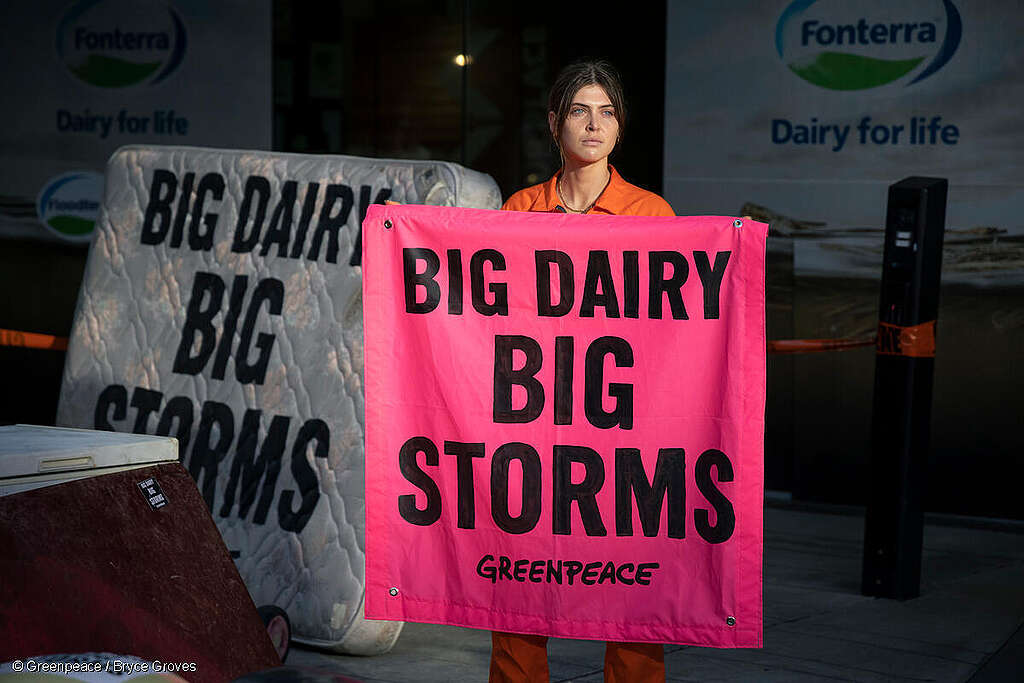
On April 23, we gathered a flotilla of crafts surrounding a massive ‘ban bottom trawling’ banner just off Mission Bay in Auckland this morning in a show of mass opposition to bottom trawling in the Hauraki Gulf marine park. Hundreds of people turned out on the beach and on the water for the event organised by Greenpeace Aotearoa and Forest & Bird. Over 60 vessels from yachts to kayaks and paddleboards joined the flotilla, surrounding a huge banner calling for an end to bottom trawling in the Gulf.
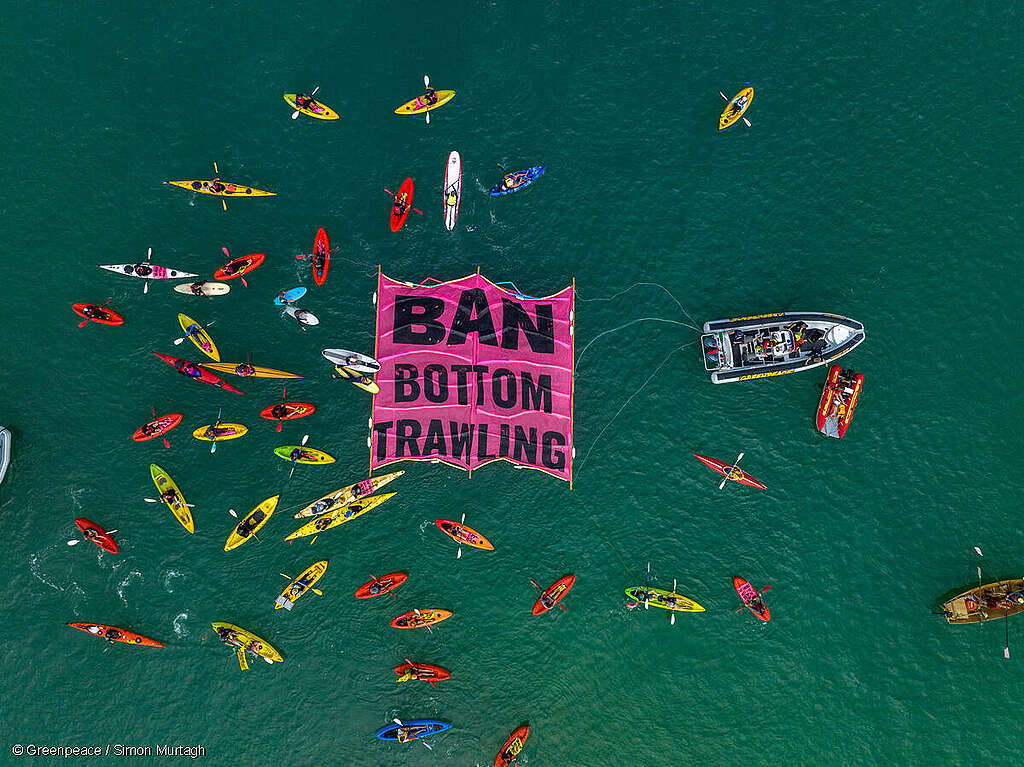
Greenpeace activists dressed as bio-luminescent deep sea jellyfish joined a global day of action to draw attention to the dangers posed to marine life by deep sea mining.
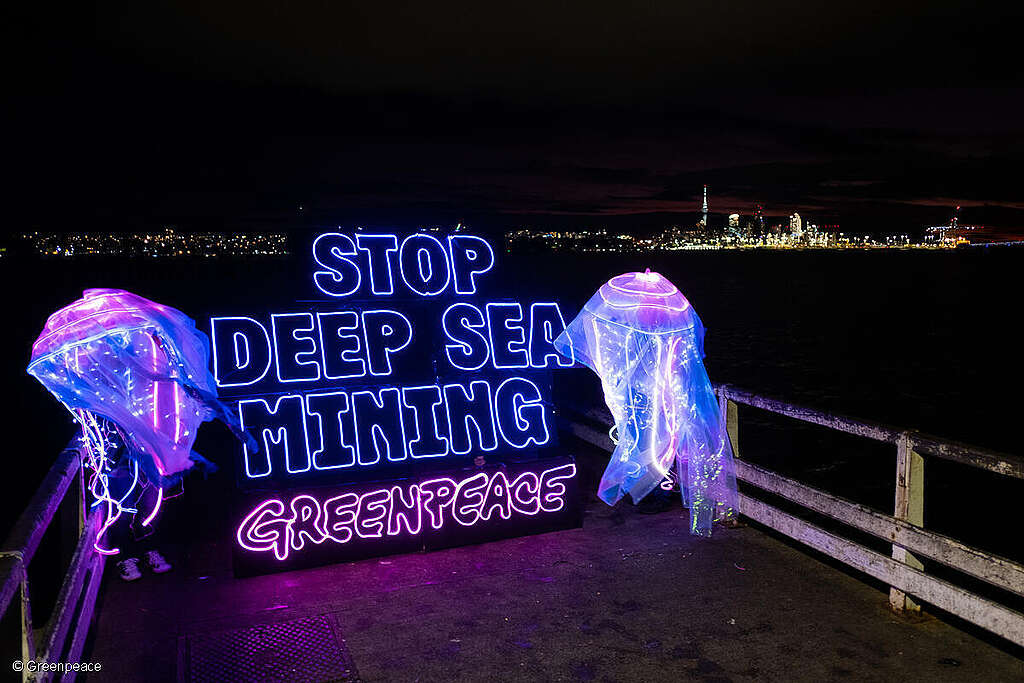
On June 22, along with members of the Hauraki Gulf Alliance, a diverse range of recreational fishing, environmental, law, corporate and business organisations, delivered a petition calling for bottom trawling, scallop dredging, and Danish seining to be banned from within the Hauraki Gulf Marine Park.
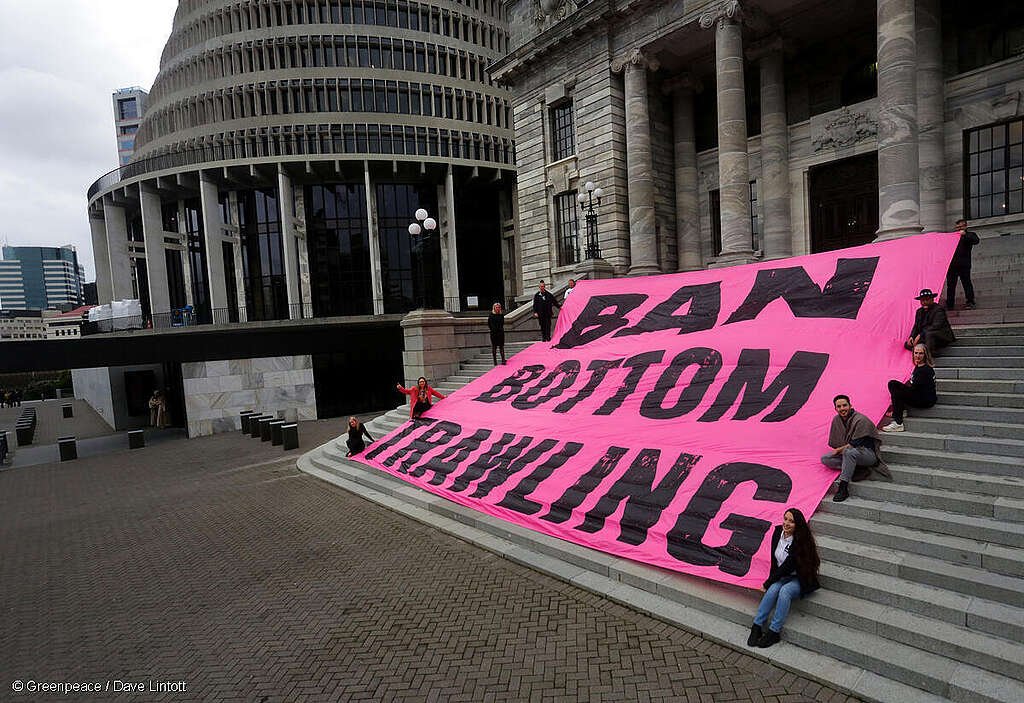
On June 27, a Greenpeace petition signed by nearly 16,000 people was delivered to Parliament today calling for the New Zealand government to stop the import of products that are linked to forest destruction and human rights abuses.
Greenpeace International forest campaigner Grant Rosoman presented the petition to Green Party MP Eugenie Sage, along with Greenpeace activists holding large, colourful photographic depictions of the forests in question and the harm that’s being done to them.
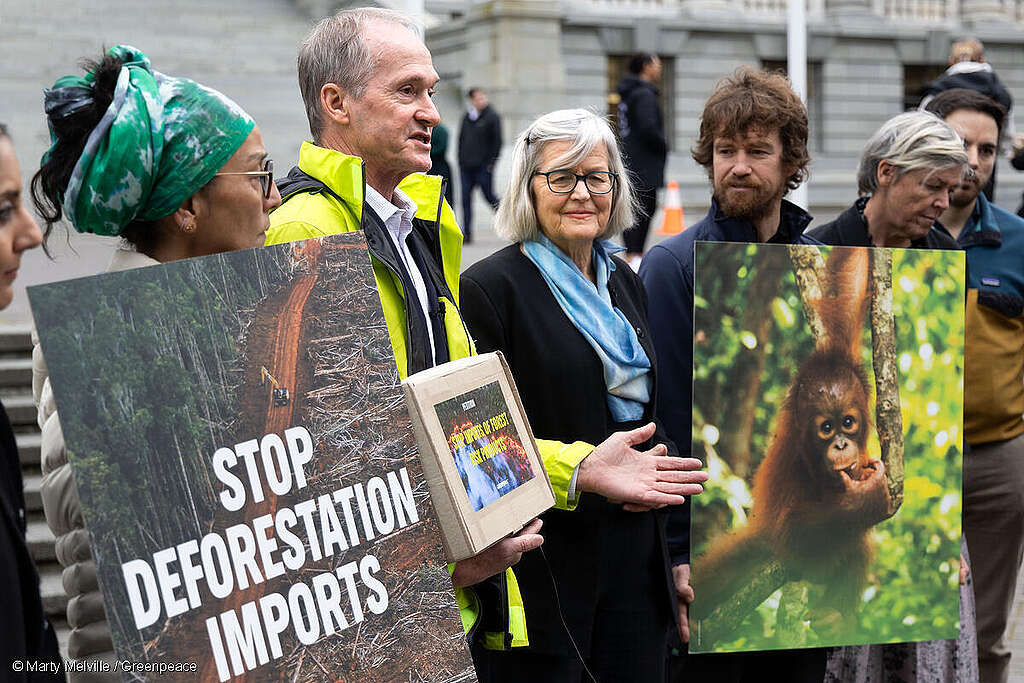
On August 10, Greenpeace activists hung a net full of ‘bycatch’ outside the Ministry for Primary Industries building in Auckland this morning, rebranding the government department ‘The Ministry for Destructive Fishing’.
This came a day after the government announced it would allow destructive bottom trawling methods to continue in large areas of the Hauraki Gulf marine park – despite 84% of people living around the Gulf wanting trawl methods banned – and in the same week that the Fishing Industry Transformation Plan left the door open for bottom trawling to continue.
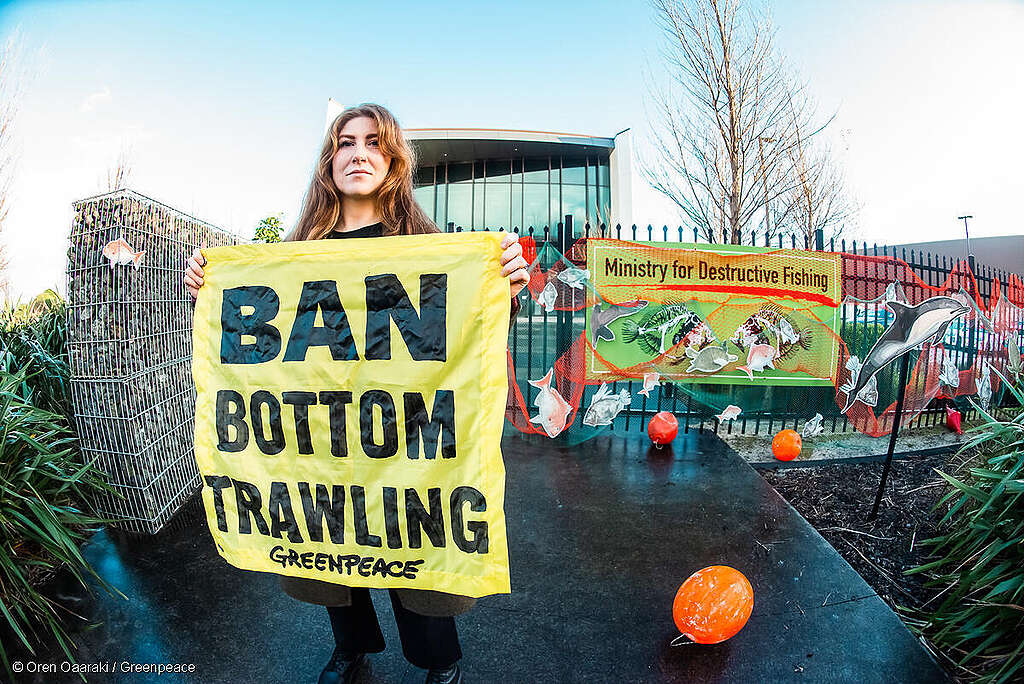
On August 31, Greenpeace activists dropped three banners from the public gallery in Parliament to call for a climate election as Parliament adjourned for the last time before the 2023 general election.
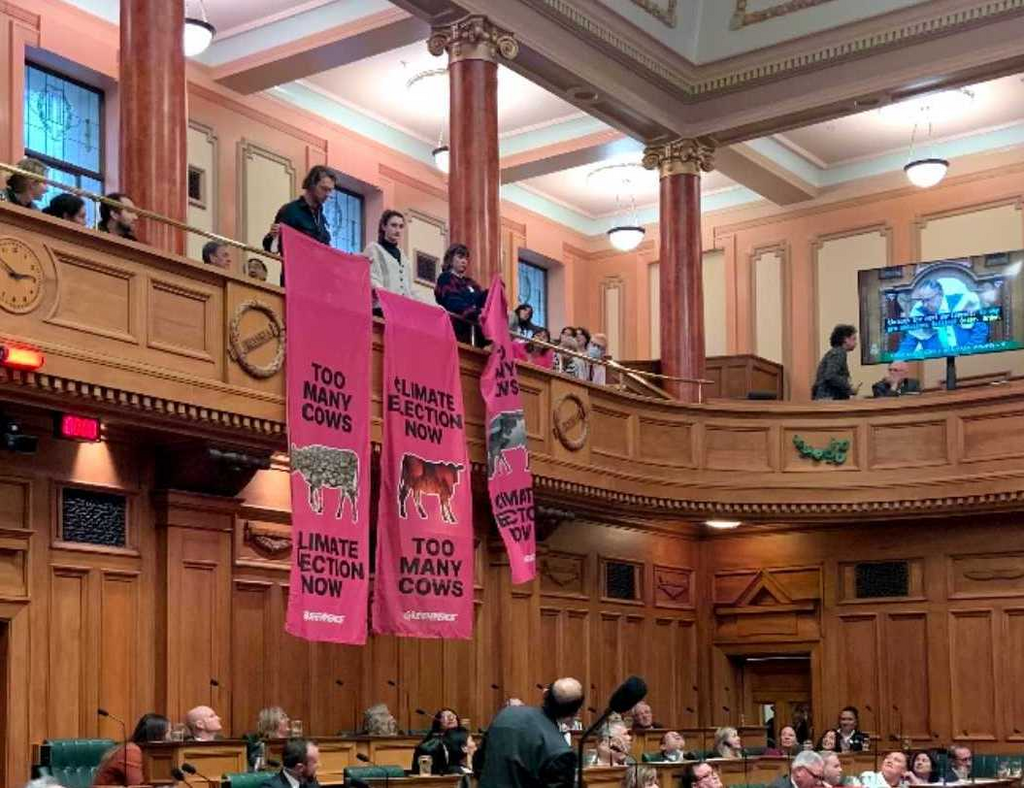
Greenpeace New Zealand activists unfurl banners reading “Too Many Cows” and “Climate Election Now” during the last day of Parliament in Wellington, New Zealand.
Photographer unknown.
On September 21, Greenpeace activists corralled a herd of ‘disaster cows’ in front of Fonterra’s Auckland HQ on the dairy giant’s annual reporting day as the dairy giant announced an increased after-tax profit of $1.577 billion compared with $583 million the previous year. Fonterra is New Zealand’s biggest climate and river polluter.
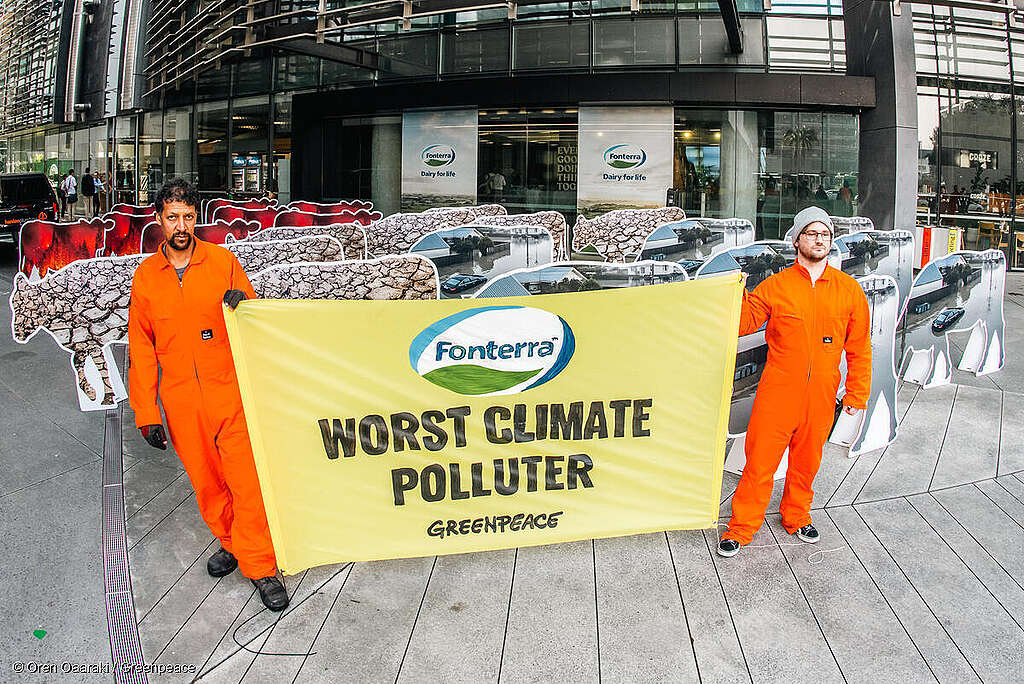
On September 21, we deployed our giant plastic-filled toroa to support the call for a strong Global Plastics Treaty as UN negotiations were underway in Nairobi.
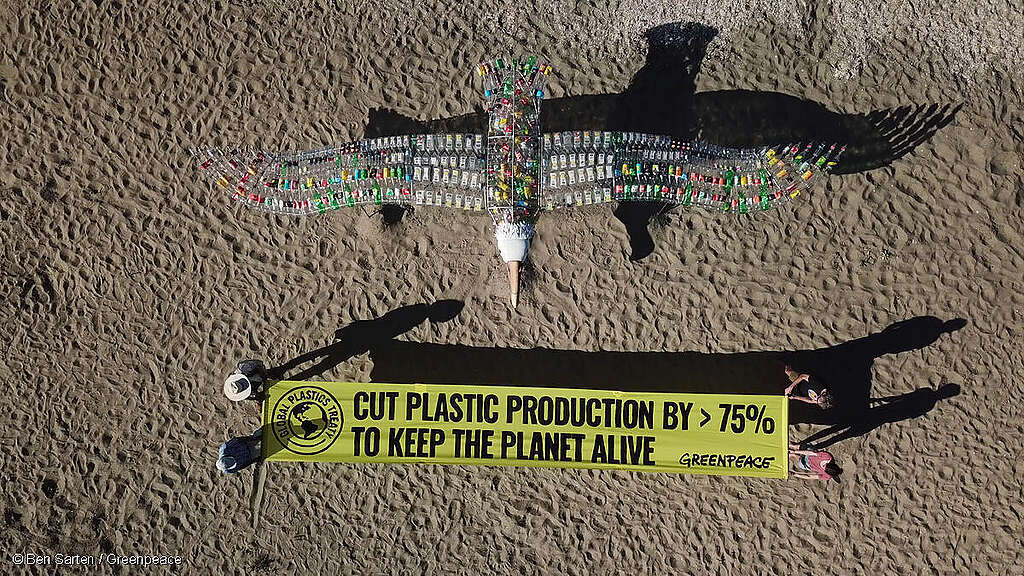
In November, Greenpeace Aotearoa staff and volunteers started carrying this banner at demonstrations calling for an immediate and lasting ceasefire in Palestine.
We also sent a letter to Prime Minister Christoper Luxon urging him and his new Government to join the call for a permanent ceasefire in Palestine and we invite you to add your name to that call now. Every minute counts. Every voice counts.
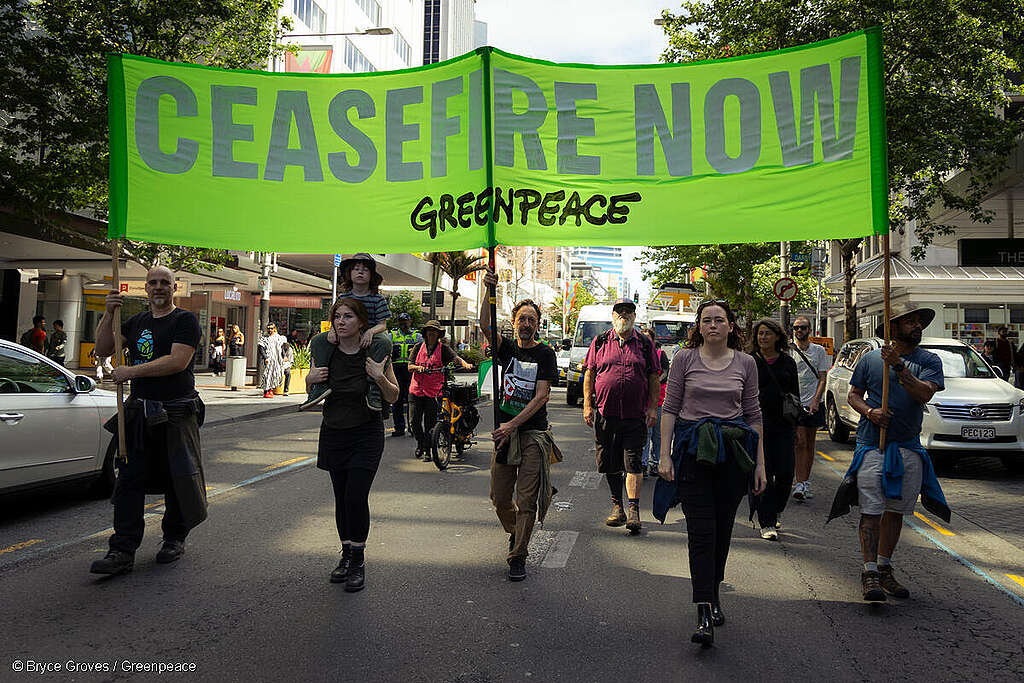
On November 27, we launched the ‘Know Your Nitrate’ map, which indicates nitrate contamination levels of drinking water across New Zealand and warns of health risks from the higher nitrate concentrations.
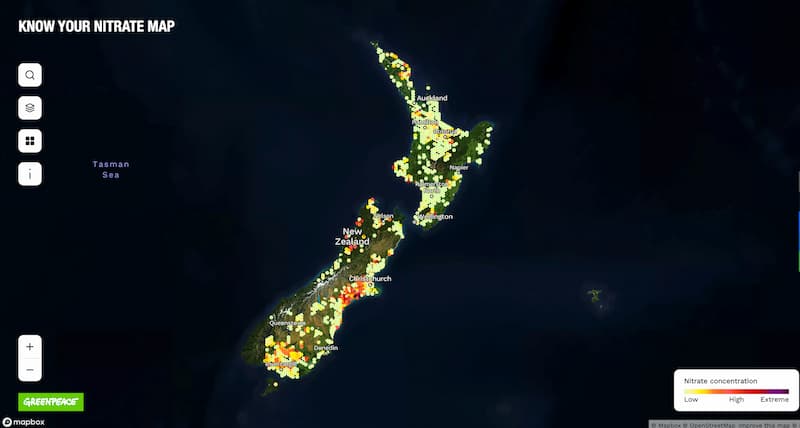
Many households on self-supply bore and well water are unaware of their potential nitrate exposure because nitrate contamination testing of self-supply bore water is not done systematically in New Zealand.
A number of public water supplies in rural areas, such as Southland and Canterbury, also have nitrate elevations that risk public health.
On December 11, in the final days of the COP28 climate talks in Dubai, we put a billboard up near Parliament in Wellington depicting Christopher Luxon, Winston Peters and David Seymour as climate extremists for their plans to restart oil and gas exploration in Aotearoa.
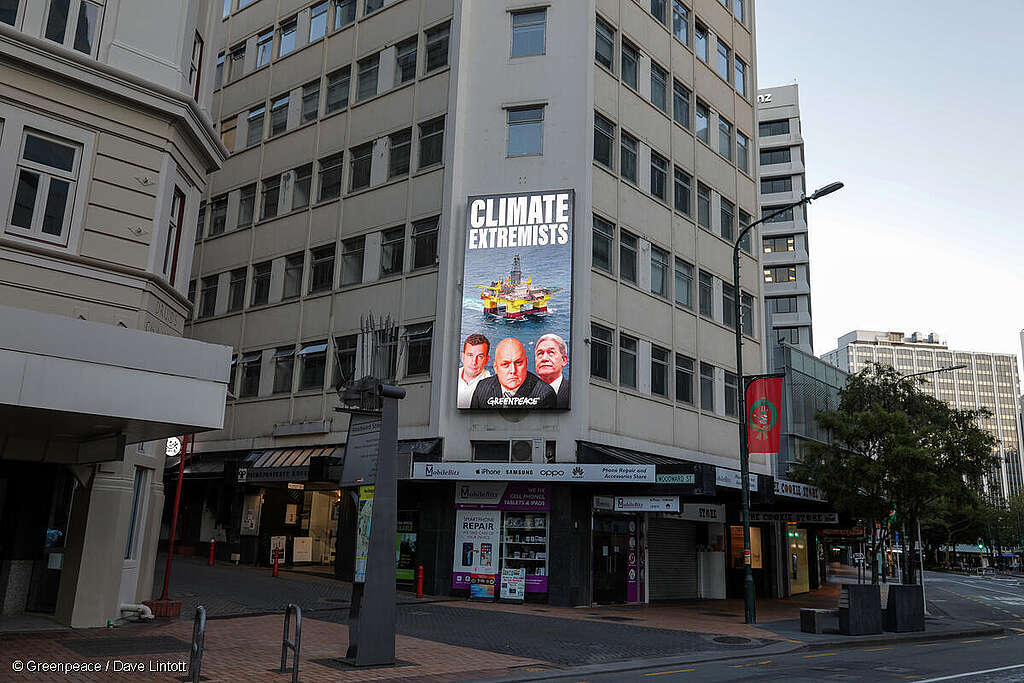
In December, we released new research that suggests more people are worried about the breakdown of nature than we think, yet feel alone in their worries and reluctant to speak out while also wanting strong leadership that helps the natural world.
And throughout the year, we supported community-led campaigns, three of which were successful in 2023!
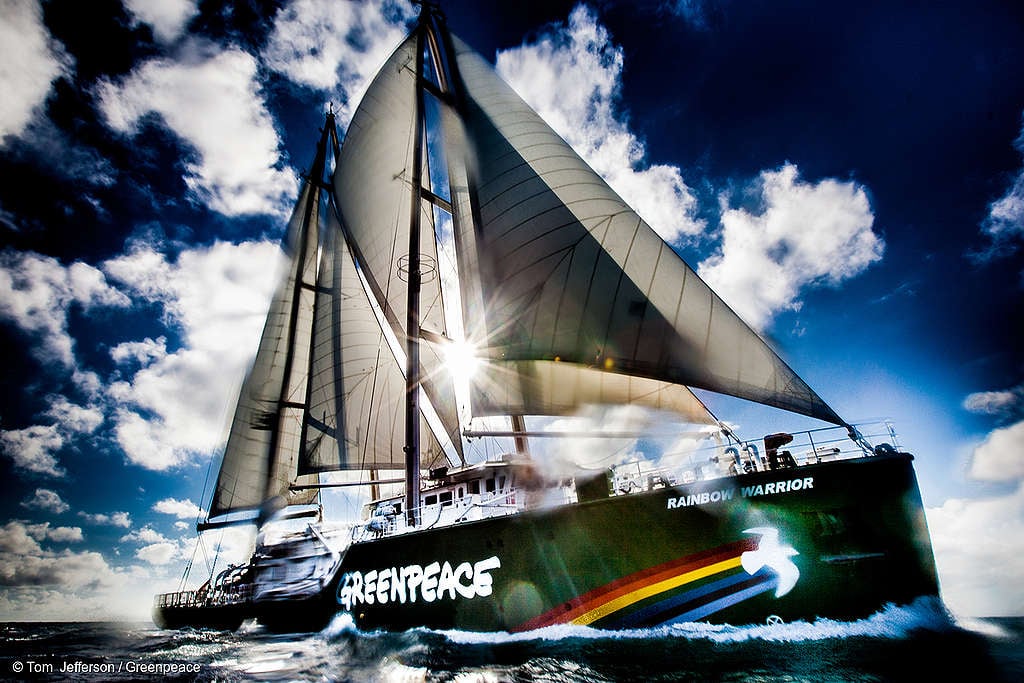
Donate to Greenpeace today. We take no money from corporations or governments. Our independence and ability to speak and act freely is our greatest strength. To maintain that freedome, we rely on the generosity of people like you to keep us in action.
